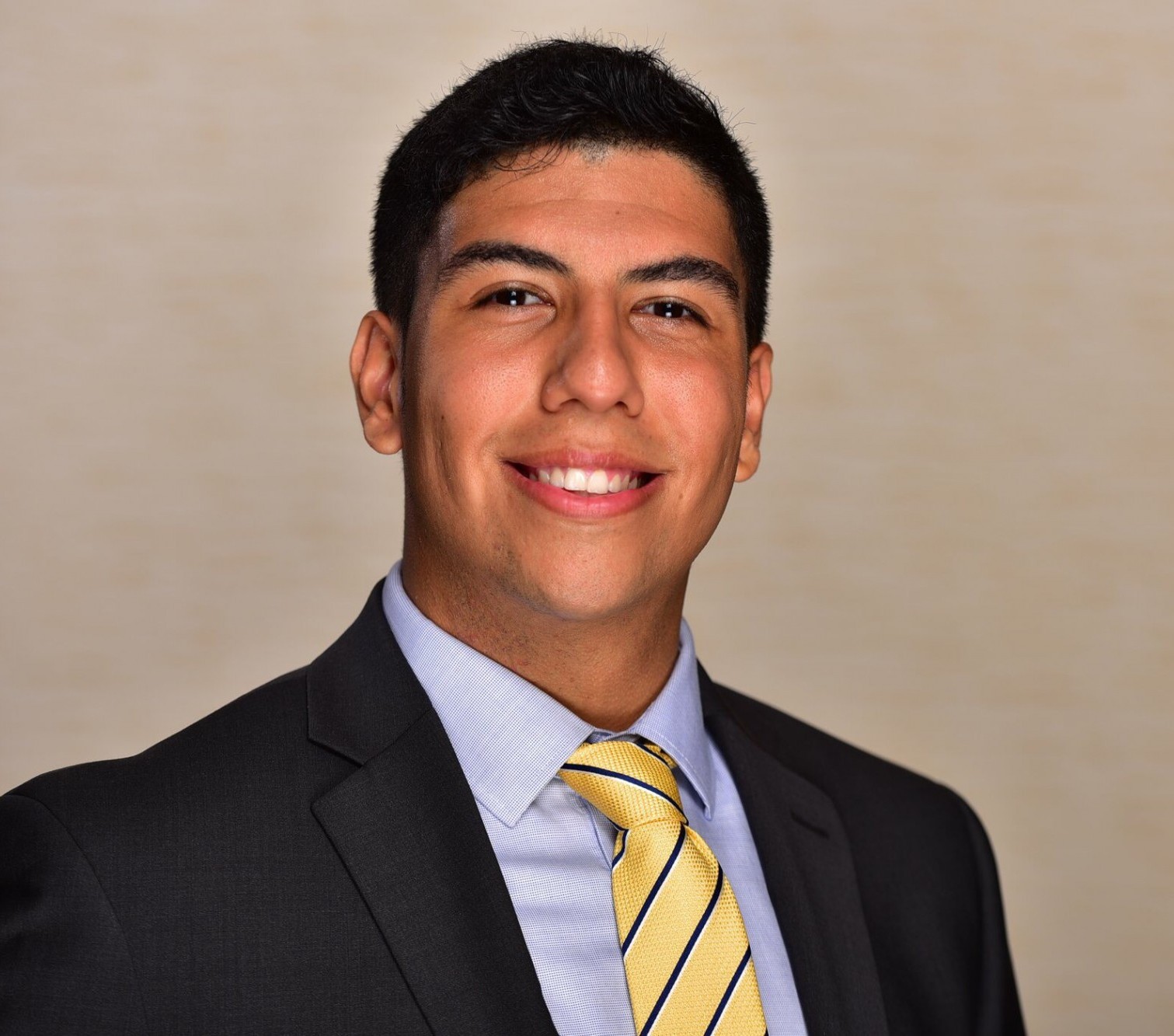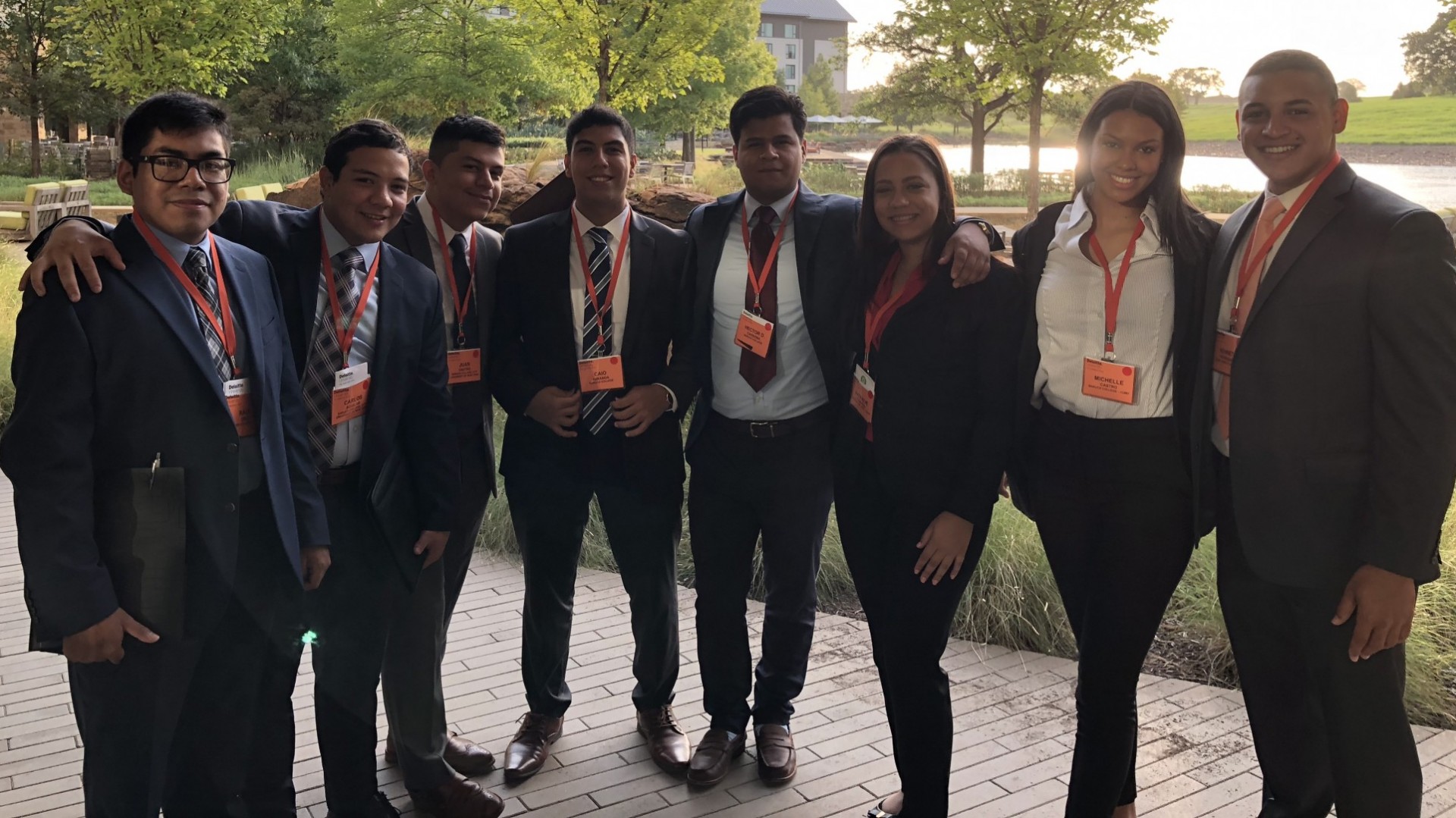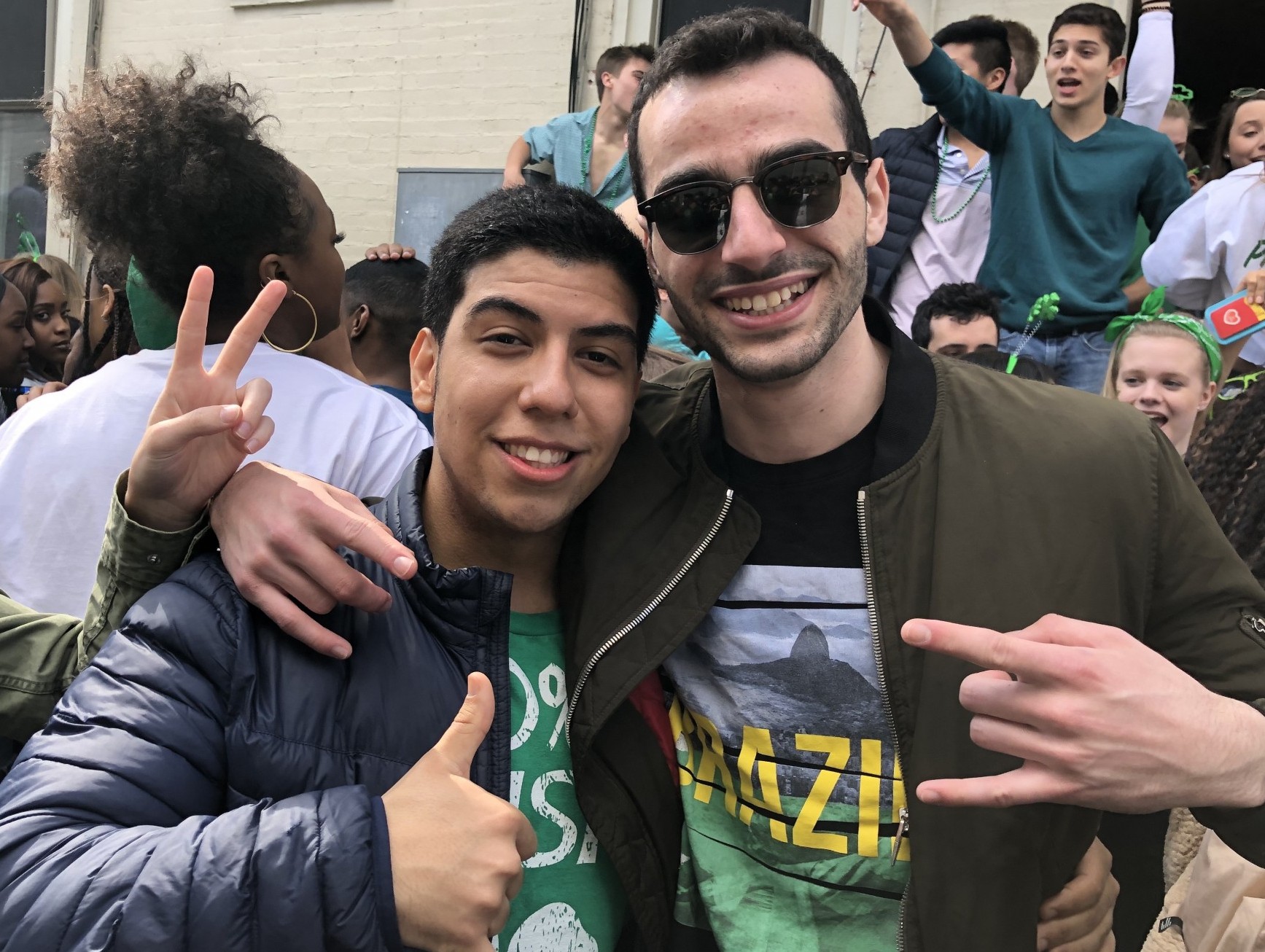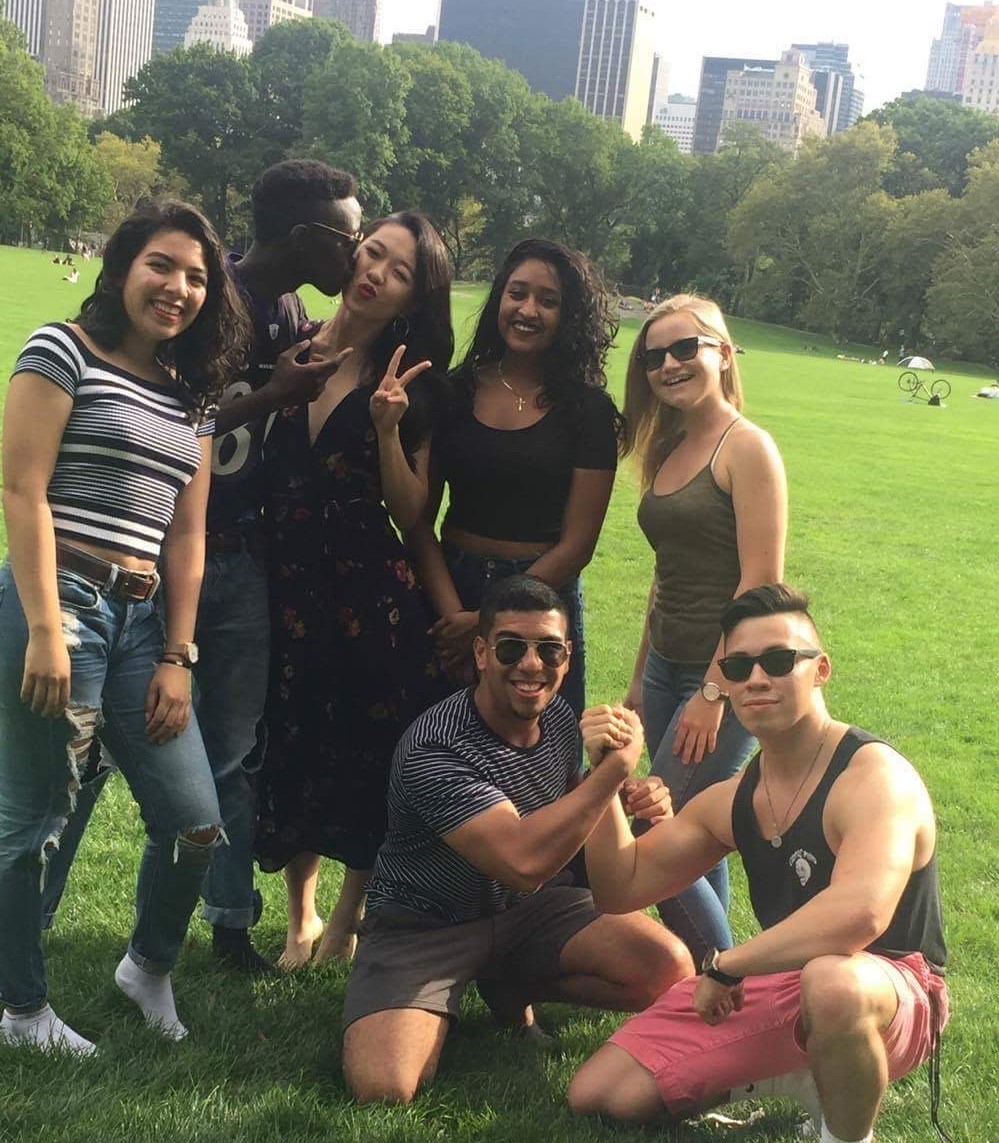Congratulations Caio Miranda!
This article is part of a series of profiles we're writing on the Freedom & Citizenship class of 2016 to celebrate their college graduations during quarantine for COVID-19

Until last year, Caio Miranda thought he was destined to work in investment banking. Everything he did supported this belief, from majoring in finance at Baruch College to securing a prestigious banking internship for his last undergraduate summer. As an immigrant and first-generation college student his path had not been easy, but he knew that every challenging step was bringing him closer to his dream. He was sure that by the end of his junior summer he would have a full-time job offer and nothing left to worry about. Then his internship began, and the more time he spent working, the closer he came to an uncomfortable realization: investment banking was not for him. By the end of the summer, and with senior year about to begin, Caio found himself contending with the crushing knowledge that he could not be happy pursuing the career for which he had been preparing for years.
Ordinarily, Caio exudes confidence. Even a short conversation with Caio will impress this point upon a person, and a longer exchange only strengthens that notion. His confidence is built on a concrete vision for himself and meticulous planning for his future, so he is not the kind of person to change course lightly. Because of this, he struggled with his newfound awareness, reflecting, “I felt lost after junior summer realizing I didn’t want to be in investment banking. I had no technical skills beyond financial analysis and modeling, so here I was working 80-hour weeks feeling kind of foolish.”

Long before Caio was a rising college senior contending with a crisis of confidence, he was a high school student who landed in Professor Montas’s Freedom and Citizenship seminar somewhat by accident. The program was not an obvious fit for Caio who was so driven by corporate aspirations even then. In fact, Caio admits, “I didn’t really believe in philosophy before Freedom & Citizenship, so I walked into that class skeptical of it.” Professor Montás made a convert of him though. He fell in love with everything from the small class discussions to the texts and the professor. “I was just this high school kid who didn’t think much of philosophy and here was a very smart guy talking with us about the meaning of the texts,” he says of Professor Montas. “The openness of it all, the discussion format--that was terrific.” The program opened his mind to other possibilities, as he explains, “sitting in that class I realized there’s so much more that I do not know and have not thought of. That was a real moment of humility.”
The openness of it all, the discussion format--that was terrific...sitting in that class I realized there’s so much more that I do not know and have not thought of. That was a real moment of humility.
His emerging interests in philosophy eventually led him to minor in communications in college. “I was inspired by the summer at F&C,” he shares, “because I understood the complexity of delivering these really detailed and intricate ideas. You have to be really good at communicating to explain a complex topic to someone who doesn’t have a background in it.” Not surprisingly then, his favorite class in college was a philosophy class passing as a communications class. Officially, the title was “Effective Memo Writing,” but the professor was really teaching the philosophy of happiness. She argued that effective memoranda are written by happy people, so she spent the class guiding her students towards finding everyday happiness. At the time, he recalls, “I was super stressed out with all my major classes and working and preparing for the summer. I had never really stopped to realize that I was stressed and never really thought about my own happiness.” Reflecting on that semester, he says, “it was so transformative.”

The same self-reflection, humility, and open-mindedness that allowed Caio to flourish in his two transformative philosophy classes served him well during his senior year of college. As his fateful summer internship came to a close, he revisited the vision that had led him to pursue finance from the beginning: “My entire goal while I was in college was to build enough skills and get enough experiences so that I could get a job that I want to do as opposed to something I have to do,” he explained, “so I started to think about what I am good at and what I can work with.” He knew he was good at breaking large problems into manageable sizes and identifying its source, so he looked for jobs that included those skills, such as consulting and project management.
Next Caio thought about the skills and knowledge he lacked, and set about filling in his gaps. Asking questions and making inquiries is second-nature to Caio, who asserts, “90% of what I’ve learned about working came from outside resources: the student body, organizations, and lots of practice.” In his first semester at Baruch Caio joined campus clubs such as the Association of Latino Professionals for America (ALPFA), where he met upperclassmen who could help him. He describes the process simply: “as a freshman, you don’t know how to do an internship, so just attending these events first teaches you what you don’t know, and that’s where you get the opportunity to expand your knowledge.” The more people he spoke with, the better he understood the process. Now he’s a mentor to four underclassmen as a way of paying back the kindness of those students who spent time reviewing his resumes and preparing him for interviews.
My entire goal while I was in college was to build enough skills and get enough experiences so that I could get a job that I want to do as opposed to something I have to do.
As his senior year unfolded and Caio continued to help his mentees secure their dream jobs in finance, he grappled with his own difficult decisions about his future. His hard work and perseverance led to job offers in consulting, finance, and technology. Deciding where to go was a “long period of discovery” with plenty of bumps in the road, as he remembers, “at one point I had kind of given up because I had an offer from Goldman Sachs for a Latin America team.” He began to doubt his decision to change career paths, worrying he was acting ungrateful for the opportunity. Then he realized, “I knew I would not be escaping the problems I wanted to escape,” so he kept searching, even turning down a finance job from Google, which drove his parents “nuts.”
In the end, Caio decided the best fit would be to work for Visa in San Francisco. His job will be rotational, which means he’ll get to explore different positions within the company to help him find his best fit. He’ll work in electronic payments, and he’s excited about the opportunities it presents and the important questions his team will be addressing: “We’ll be thinking about problems like how do we create a payment platform that works with a smartphone that costs just $25? When you think of the population outside of the United States that’s what we’re working for. How can we push for inclusivity for folks who don’t have the luxury that we have with these high tech devices?”
Caio will spend this summer finishing his last remaining credit at Baruch before beginning his job at Visa in San Francisco. Wherever life takes him, we know he will approach every new challenge with the same levels of introspection, inquisitiveness, and confidence that brought him to graduation. Congratulations Caio Miranda, Baruch College Class of 2020!!
